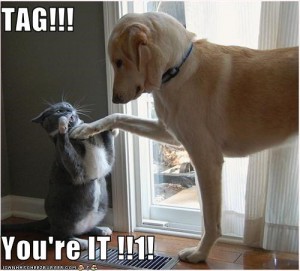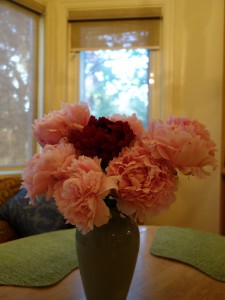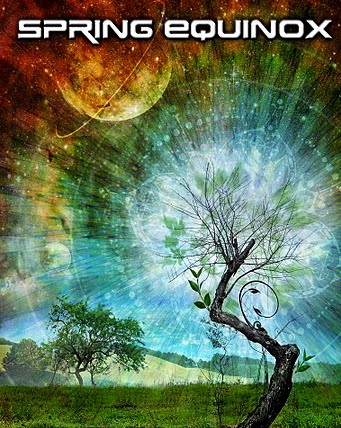 My friend, author Kristin Butcher, invited me to be part of a virtual game of blog tag. The process is simple – we answer a few questions about writing and tag three other authors to do the same a week or two later.
My friend, author Kristin Butcher, invited me to be part of a virtual game of blog tag. The process is simple – we answer a few questions about writing and tag three other authors to do the same a week or two later.
Thanks for the invite, Kristin! I met Kristin years ago when we were on a panel at a local high school talking about our writing process. We became friends. Though Kristin lives on the northern part of the island and I live on the southern tip, we stay in touch through emails, Facebook, and occasional face-to-face coffees or lunches. Find out more about Kristin’s writing here: http://www.kristinbutcher.com/
I’ve tagged three other writing friends to follow me: Lisa McManus Lange, Jacquie Pearce and Nikki Tate. Look for their posts around June 2nd.
And now to the questions:
What am I working on?
I generally juggle two or three projects at once, sometimes more if I have a magazine article deadline. I just finished page proofs for THE ART OF GETTING STARED AT, which will be out this August. With Penguin’s support, I’m about to tackle my first ever book trailer. That’ll be fun and a whole new thing for me! I’m in the middle of writing another YA novel called ONE GOOD DEED. It’s about a sixteen-year-old girl who saves a man’s life. The fallout from that one good deed has long-ranging and potentially disastrous consequences. And I’ve just signed a contract with Orca Book Publishers to write another book in their Limelights Series – this one tentatively titled STEPPING OUT.
I also write fiction for adults under the name Laura Tobias. In the next few months, I’ll be releasing my first adult novel called WHAT LAINEY SEES. It’s a romantic suspense with a Native American time travel element, so it’s essentially two stories in one. This book has been in the works for quite a long time and I’m excited that it’s finally coming out. Once that’s released, I’ll be revising another Laura Tobias title: GIRLS WHO DISH. It’s a contemporary story about a lottery win told from three points of view: one teenage girl and two adults.
How does my work differ from others of its genre?
That’s a hard question to answer. I write in multiple genres: young adult and adult novels, middle grade fiction, picture books, and non-fiction for both adults and kids. So I suppose my versatility sets me apart from some authors.
I’ve also been told I have a fairly distinct voice. Because I write for different age groups, I work hard to ensure the voice and attitudes for each particular book remain true to the age and maturity level for that genre. A fifteen-year-old protagonist thinks differently from a five-year-old who thinks and acts differently again (or one would hope!) from a 35-year-old.
Finally, while I love uplifting stories and try to end most books on a hopeful note, I’m not afraid to tackle painful or controversial subjects like sperm donor children or memory loss or Canada’s internment of Ukrainians during World War One.
Why do I write what I do?
I wish I knew! Seriously, I sometimes wish I had a passion for just one subject because I think it’s easier to build a readership that way. If I wrote only young adult or mystery or adult contemporary novels, people would know what they were getting when they opened a Laura Langston or Laura Tobias book. But I’m all over the map. Life is fascinating. People are fascinating. Research is fascinating. I go where my curiosity takes me. And it takes me in many directions.
How does my writing process work?
I’m a morning person so in terms of my daily routine, I do my fresh writing in the morning and if I’m on a roll, I’ll continue with it after lunch. If I’m feeling bogged down on the current work-in-progress, I’ll switch gears in the afternoon and work on an article or a blog post, or on a novel that’s in revision stage. Lately I’ve been doing a lot of my writing on a treadmill desk. It was surprisingly easy to adapt, and it really boosts creativity.
In terms of ideas, I have more ideas than time. I keep an idea file but when I finish one book I usually know which one will come next. It’s the one that’s calling the loudest!
Before I do any actual writing, I noodle around with characters, goals and motivation. I need to know what’s at stake and I like to have an idea of my final destination – the climax and how the story will end (though that’s open to change and often does!) Sometimes I write a longish outline, chapter by chapter, but other times I have a shorter roadmap of sorts. Either way, I almost always write a mock back cover book blurb early on to help me stay focused.
I revise as I go, reading over what I wrote the day before and briefly tweaking it before jumping into the story again, and I almost always revise afterwards too. I generally set my manuscripts aside for a few weeks, go back to them, and see places that need tightening or character arcs that need to be better developed. I love the revision process, particularly after a full draft; that’s when the story coalesces for me. But I have one annoying habit: I need to nail and polish the first three or four chapters early on. If something isn’t working in those beginning chapters I come to a total stop. It’s crazy because I’ll often revise those early chapters again later, but if they don’t work for me at the start, I can’t go forward. It’s almost like I’m packing a suitcase for a trip and I need to be organized with everything at hand before I leave. Once I’m happy with the start of the journey, I’m open to whatever comes up!
Three authors to watch for:
I met Lisa McManus Lange at a writing craft session put on by Romance Writers of America. Lisa routinely gets up at 4 or 5 every morning to exercise and write before starting her day job. She’s the proud and active parent of two sons, a regular blogger, and one of the most dedicated and productive writers I know.
Lisa McManus Lange (www.lisamcmanuslange.blogspot.com) has been writing slice-of-life stories for over 12 years. Multi-published with Chicken Soup for the Soul and anthologies by Publishing Syndicate, her newest writing adventure has led her to having her first novel for young adults published by Lycaon Press as an ebook. ‘Newbie Nick’ will be released on June 18th and you can read about it more at www.lisamcmanus.com
I met Jacquie Pearce at a CWILL event in Vancouver years back, and while I don’t remember the specific time or group we were addressing, I remember the book she was introducing – Weeds and Other Stories. I was so taken by her reading that I bought the book and devoured it on the ferry trip home. I’ve been a huge fan of her writing ever since.
Jacquie Pearce writes fiction for kids and teens. Her recent chapter book, Flood Warning, tells the story of a boy and his dog during the Fraser River flood of 1948. Her newest novel, Siege, about a teenage boy who stumbles across criminal activity in the middle of a War of 1812 re-enactment, will be out this fall. Blog: wildink.wordpress.com Website: jacquelinepearce.ca
The first time I saw Nikki Tate present to children I knew I was witnessing a formidable talent. Whether she’s wearing her author hat, her storytelling hat, her reviewing hat, or her farming hat, Nikki brings her complete focus to everything she does. She’s also full of useful recommendations – everything from the best YA read of the season to the perfect tax accountant!
Nikki Tate is the author of more than twenty books for young readers. She enjoys working in all genres and age groups (picture books, juvenile fiction, teen fiction, historical fiction, fantasy novels, biography, and non-fiction) and for all age groups. When she isn’t writing, Nikki keeps busy raising rare heritage breeds of farm animals on her small farm on Vancouver Island. For more information visit her author website at www.nikkitate.com or check out what’s going on down on the farm by reading her farm blog at www.darkcreekfarm.com/blog
 I was up before dawn this morning to drive Teen Freud to the airport. He and his friend, Molly, are off on a grand adventure to Morocco and England. This is a Very Big Deal for him. While he has travelled with us as a family and went to Quebec City as an exchange student in high school, he hasn’t traveled on his own. At least no trips of this scope or one this far away from home. I watched them walk through security with a mix of excitement, envy and trepidation. It’s a mom/writer thing. My mind is a constant and fertile ground of ‘what-ifs.’ I had to take a step back and remind myself that, at his age, I’d gone off with his father on a four month road trip through Europe and Russia. Not only had we survived, we’d thrived. It broadened our minds, strengthened our bonds and we’re still telling some of our stories.
I was up before dawn this morning to drive Teen Freud to the airport. He and his friend, Molly, are off on a grand adventure to Morocco and England. This is a Very Big Deal for him. While he has travelled with us as a family and went to Quebec City as an exchange student in high school, he hasn’t traveled on his own. At least no trips of this scope or one this far away from home. I watched them walk through security with a mix of excitement, envy and trepidation. It’s a mom/writer thing. My mind is a constant and fertile ground of ‘what-ifs.’ I had to take a step back and remind myself that, at his age, I’d gone off with his father on a four month road trip through Europe and Russia. Not only had we survived, we’d thrived. It broadened our minds, strengthened our bonds and we’re still telling some of our stories.
















Comments